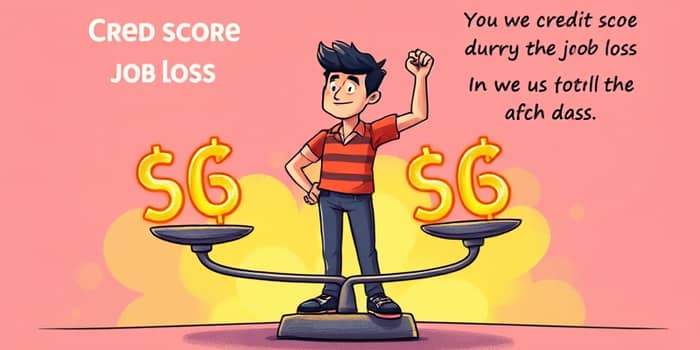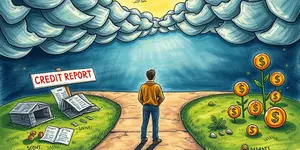
Losing a job often triggers a cascade of worries: How will bills get paid? Will I lose my home? In the midst of this upheaval, your credit score may not be at the top of your mind—but neglecting it can lead to long-term financial complications. A strong credit profile is more than just a number; it opens doors to affordable loans, favorable interest rates, and the peace of mind that comes with financial stability.
This comprehensive guide will show you why unemployment itself doesn’t lower your score, which indirect dangers to watch for, and the practical steps you can take to shield your credit health. By combining strategic planning with emotional resilience, you can transform a challenging period into an opportunity for growth and stronger financial habits.
Credit bureaus focus on your history of borrowing and repayment, not on your current salary or job title. The major agencies—Equifax, Experian, and TransUnion—assign weights to specific behaviors, creating a snapshot of your creditworthiness in the form of a score.
Among these factors, payment history is the single biggest driver of your score, and high balances can quickly negate on-time payments. Understanding this framework allows you to focus on the activities that matter most, regardless of income status.
While your credit report may note an employer’s name, scoring models do not penalize unemployment. Instead, risk arises when you feel the pinch of lost income and resort to unhealthy financial decisions. One late payment—counted after a 30-day grace period—can ding your score by dozens of points and remain visible for years.
If balances creep above recommended levels, typically below 30% of your limits is ideal, your utilization ratio spikes dramatically. Carried balances that once seemed manageable can become a major liability when your paycheck disappears.
Even well-intentioned attempts to consolidate or settle debt can become long-term blemishes if not negotiated properly. Remember that negative records fall off eventually, but proactive steps can shorten the pain and accelerate recovery.
When your income stops, adopting a structured approach is crucial. By pairing disciplined spending with open communication, you position yourself to withstand temporary hardships without sacrificing credit health. Embrace the mindset that proactive measures yield stronger results in both your score and your peace of mind.
Consistently applying these tactics can prevent a minor setback from ballooning into a long-term problem. Even small victories—like making an early payment or calling a lender—reinforce your control.
Understanding how long negative items linger can guide your actions and manage expectations. While time heals many credit wounds, early damage control and continuous positive behavior are the fastest routes back to a healthy score.
As each year passes, a single negative mark has less impact on your overall history. By maintaining strong payment habits, you ensure that new positive entries counterbalance any past struggles.
Stress from lost income can lead to avoidance—ignoring bills, skipping statement reviews, or isolating oneself socially. Combat these tendencies by establishing a daily routine, allocating time for both financial tasks and self-care. Journaling your progress or discussing concerns with a trusted friend can alleviate anxiety.
Be mindful that financial distress can lead to impulsive spending as a coping mechanism. Setting small, achievable goals—such as reducing one card’s balance by ten percent—provides motivation and a sense of mastery. Celebrate these milestones to build positive momentum.
Professional help is also available. Unemployment benefits, local assistance programs, and nonprofit counseling services exist to buffer your transition and reduce the temptation to compromise your credit health out of desperation.
Temporary unemployment does not have to spell permanent damage for your credit score. By centering your efforts on payment consistency and smart debt management, you create a protective barrier against the ripple effects of job loss. Proactive communication with creditors combined with disciplined budgeting keeps your credit narrative firmly in your hands.
Remember that time and renewed regular payments will gradually repair any dent in your history. Take early action, seek help when needed, and maintain a forward-looking mindset. This challenging chapter can become a powerful testimony to your resilience, ultimately laying the groundwork for stronger financial health and brighter opportunities ahead.
References













